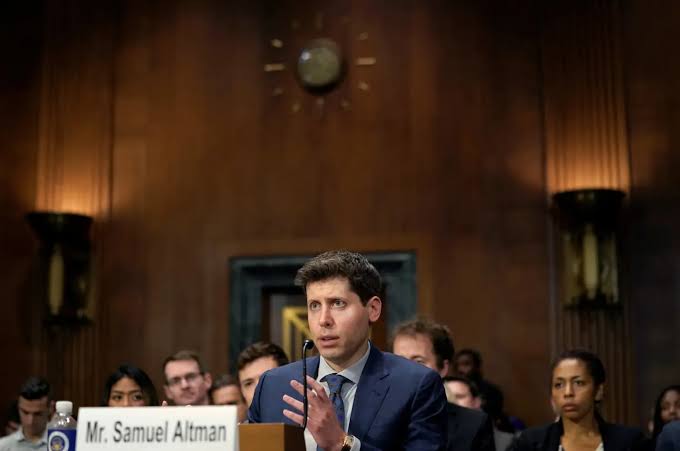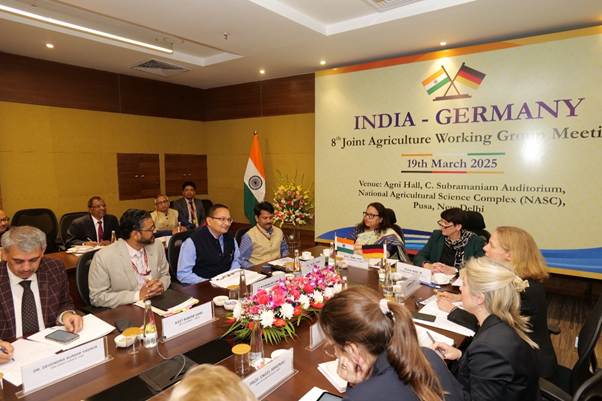At the launch of the thought-provoking book AI on Trial authored by Member of Parliament Shri Sujeet Kumar, Vice-President Jagdeep Dhankhar delivered a deeply insightful and compassionate address, shedding light on the growing relevance—and risks—of artificial intelligence in our lives.
 In an atmosphere filled with warmth, admiration, and concern for the future, the Vice-President offered not just accolades for the book, but also a heartfelt perspective on the transformative power of AI and the ethical dilemmas it brings. He spoke fondly of the many distinguished guests in attendance, including Smt. Sudha Murthy, whose grace and simplicity he lauded as an example for all generations, and Shri Sujeet Kumar himself, whom he described as a humble yet impactful thinker and policymaker.
In an atmosphere filled with warmth, admiration, and concern for the future, the Vice-President offered not just accolades for the book, but also a heartfelt perspective on the transformative power of AI and the ethical dilemmas it brings. He spoke fondly of the many distinguished guests in attendance, including Smt. Sudha Murthy, whose grace and simplicity he lauded as an example for all generations, and Shri Sujeet Kumar himself, whom he described as a humble yet impactful thinker and policymaker.
Drawing from his own experiences and observations, the Vice-President reflected on how technology has revolutionized daily life in India—from mobile banking to the seamless accessibility of services once burdened by long queues and bureaucratic delays. He credited visionary leadership for this transformation, acknowledging how inclusive initiatives like Jan Dhan Yojana have empowered millions in rural India.
However, his tone turned cautious as he delved into the darker possibilities of AI. He issued a stark warning that, if left unchecked, artificial intelligence could not only disrupt systems but also deeply harm democratic institutions, legal processes, and individual freedoms. “AI is out of the bottle,” he said. “Like nuclear energy, it holds immense potential, but also great danger.”
He emphasized the need for balanced regulation—neither so stringent that it stifles innovation, nor so lax that it endangers public safety or entrenches social biases. “Our goal,” he said, “must be to design regulation as a scaffold, not a cage.” He stressed the importance of a rights-based framework that protects citizens, particularly the vulnerable, from opaque algorithms and automated decision-making that could impact livelihoods, liberty, and dignity.
The Vice-President’s remarks were not limited to policy. They echoed a profound human concern—about identity, fairness, truth, and the need for institutional integrity in an age of increasing automation. He spoke about how artificial intelligence challenges traditional legal doctrines and risks undermining the essential human qualities behind judicial decisions. “Justice,” he reminded the audience, “cannot be robotized.”
He also drew attention to the ethical responsibilities of media, social platforms, and institutional actors in the digital age. With misinformation rampant and social media shaping narratives at lightning speed, the Vice-President called for vigilance and introspection, noting how unchecked AI could exacerbate division and threaten the democratic fabric of Bharat.
The book AI on Trial, according to him, serves as both a wake-up call and a roadmap—one that compels lawmakers, technologists, and society at large to tread carefully, thoughtfully, and compassionately. “If AI is not regulated,” he concluded somberly, “we will face trial by AI. And that will be a very difficult trial.”
His closing sentiment was a call for unity, humility, and purpose: to use technology not to divide, but to uplift. In a world increasingly defined by algorithms, his words reminded everyone present of the irreplaceable value of human judgment, empathy, and responsibility.




